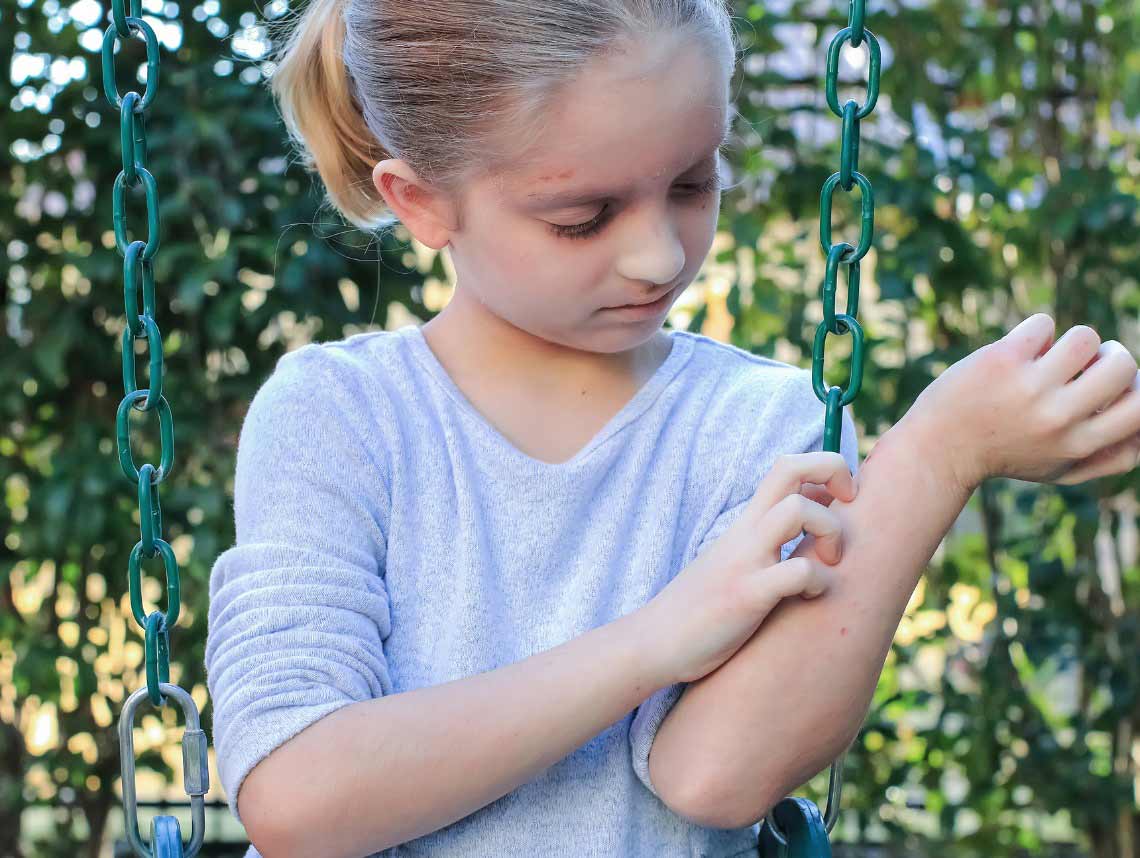Receiving a medical diagnosis of a disease is always disconcerting — and it feels a lot worse when the patient is your child. However, certain conditions are more manageable than others, and such is the case with guttate psoriasis. But, what does it entail? What causes it? What are the symptoms? And what can you do to ensure your child is as comfortable as possible?
What is Guttate Psoriasis?
Guttate psoriasis is a skin condition that causes red, scaly rashes to appear all over the body. It can occur at any age and it’s considered to be an autoimmune disorder — meaning the child’s body is invading its own cells. In some children, the skin may appear only once, while it develops in others as a chronic condition.
While having guttate psoriasis can feel uncomfortable, it’s possible to maintain the rashes and symptoms under control. This type of psoriasis got its name from the Latin word for drop, since that’s the shape of the patches that appear on the skin.
Causes of Guttate Psoriasis
While sometimes a person can be more likely to develop guttate psoriasis if they have a family history of the condition, there are several other factors that could trigger an outbreak. These include:
- Influenza
- Upper respiratory or sinus infections
- Tonsillitis
- Cuts, burns, or injury to the skin
- Strep throat
- Stress
- Certain medications
If the psoriasis was caused by an underlying infection, the rashes could completely clear up once the person is fully healed. While a future outbreak may occur, it’s also possible that it may never happen again.
Symptoms of Guttate Psoriasis
The symptoms of guttate psoriasis can range from mild to severe. The rashes could also appear only in one body part or all over the body. Telltale signs that a child is experiencing guttate psoriasis are skin lesions that are:
- Shaped like a drop
- Scaly
- Distinctly separate from each other
- Red or pink
- Small
Guttate psoriasis lesions appear suddenly and can cover most of the torso and limbs. Some individuals may also experience several lesions on their face and scalp. These rashes are itchy and can become inflamed if you scratch them.
Diagnosis and Treatment of Guttate Psoriasis
If your child has an unusual rash, their pediatrician will first conduct a physical examination. If they believe your child has any type of psoriasis, they will refer your child to a dermatologist to confirm the diagnosis. The dermatologist will then verify your child’s medical history and recent life circumstances to determine whether it’s possible your child is having an allergic reaction. Although it’s not always necessary, it’s also possible to need a skin biopsy.
Treatment for guttate psoriasis will depend on the severity of the condition. For mild outbreaks, your child may not need any treatment. For more severe cases, the dermatologist will prescribe topical ointments — some with corticosteroids or biologics to reduce itching and/or suppress the immune system.
Your child’s doctor may also recommend specific shampoos, lotions, and other personal care items, as well as exposure to UV rays. Which type of treatment works best depends on the severity of the psoriasis.
Contact Care Options for Kids for Home Health Care in Florida
It can be hard to balance your time between work, home, and caring for a child. That’s why our team of skilled professionals at Care Options for Kids is here to help.
Our home health care services offer support in the comfort of your home. We refer loving and competent nurses to provide customized care for families — from a few hours a day to around-the-clock supervision. Contact us directly to speak with a home health care professional or request a free in-home assessment. Together we can determine the best plan of action to keep your loved ones happy and healthy.
If you or a loved one are considering Pediatric Home Health Care Services in Florida, contact the caring staff at Care Options for Kids. Call today at (888) 592-5855.






